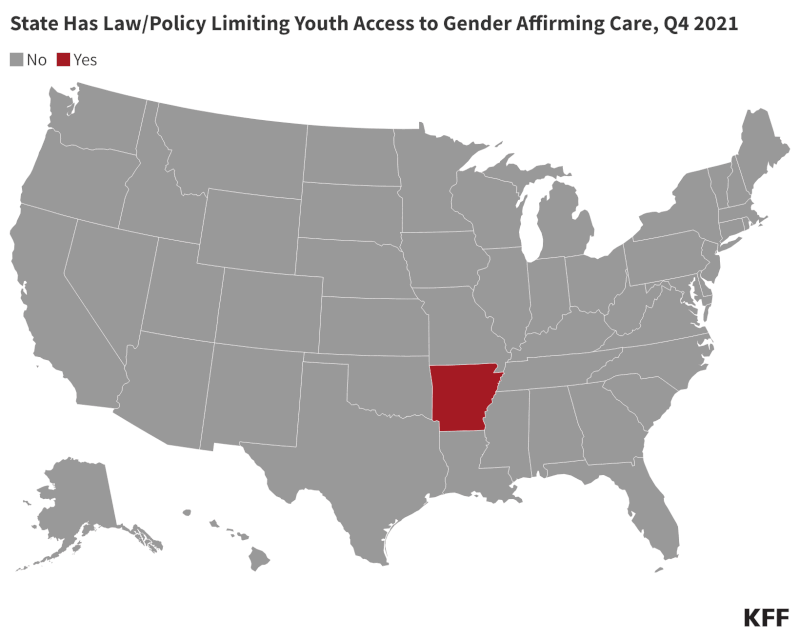Half of All U.S. States Limit or Prohibit Youth Access to Gender Affirming Care
As of May 21, 2024, KFF tracking shows that half of all U.S. states have enacted a law that prohibits or limits youth access to gender affirming care. The uptick in this lawmaking was slow at first but then rapidly accelerated over the course of the past 18 months. LGBTQ civil rights, including those related to health care access, continue to be the subject of divisive political debates at the state and national level, particularly as the election season heats up.
Figure 1

Arkansas was the first state to enact a youth gender affirming care ban in April 2021, with Arizona and Alabama following about a year later. Beginning in January 2023, the number of states enacting these policies rapidly proliferated and by August, the number of states with bans reached 22 – a seven-fold increase in an eight-month period. As of last week, the total number of states has now reached 25. While these laws do mainly impact youth access to health care, some impact adult access too, and a majority of the laws (23 of 25) include professional and/or civil penalties for health care practitioners who provide such care, including six states with felony penalties. Similar to the proliferation of bans, legal challenges are piling up, and laws in 17 of the 25 states are being challenged in state or federal court. (Detailed information about these state laws and litigation available in our Policy Tracker: Youth Access to Gender Affirming Care and State Policy Restrictions, which KFF will continue to update as developments occur.)
